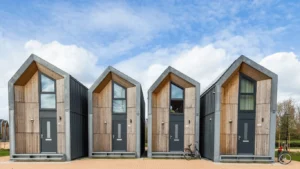Smart investment strategies are more crucial than ever. Amid economic shifts, investors need to recalibrate their approach to ensure both short-term gains and long-term growth.
Navigating the Economic Currents
The Canadian real estate market, much like the country’s diverse terrain, presents a myriad of opportunities and challenges. In this climate, savvy investors are turning towards a more dynamic approach. Rather than relying on traditional hotspots like Toronto and Vancouver, a new trend is emerging: the rise of secondary cities. Places like Halifax, Saskatoon, and Kelowna are becoming investment havens, offering a blend of affordability and growth potential.
Tech-Driven Investments
The digital revolution is not just transforming how properties are bought and sold; it’s reshaping investment strategies. Smart investors are leveraging big data and AI to predict market trends, identify undervalued properties, and make data-driven decisions. This tech-savvy approach is not just about crunching numbers; it’s about understanding the human element behind the data – the shifting demographics, the evolving needs of communities, and the environmental factors influencing the market.
Sustainability as a Cornerstone
Sustainability is no longer just a buzzword; it’s a critical investment criterion. Properties that boast energy-efficient features, green certifications, and sustainable designs are not just good for the planet – they’re good for the wallet. These features are increasingly attractive to buyers and renters, promising lower utility costs and a smaller carbon footprint.
The Rise of Mixed-Use Developments
Mixed-use developments are redefining urban living. These spaces, which combine residential, commercial, and sometimes industrial elements, are becoming hotspots for investment. They cater to a growing desire for walkable, versatile communities where living, working, and leisure coexist. Investors are recognizing the long-term value of these developments, as they tend to be resilient to market fluctuations.
The Future is Flexible
The real estate market is witnessing a shift towards flexible living spaces. The rise of remote work and the gig economy is changing what people want in a home. Properties with adaptable spaces, like convertible home offices or multi-functional areas, are in high demand. Investing in properties that can easily adapt to these changing needs is a forward-thinking strategy.
The Canadian real estate market is a dynamic entity shaped by economic shifts and societal changes. Investors who embrace these changes, leverage technology, prioritize sustainability, and invest in emerging hotspots and flexible living spaces are positioned to thrive. The future of real estate investing is not just about where you invest but how you adapt to the changing landscape.





